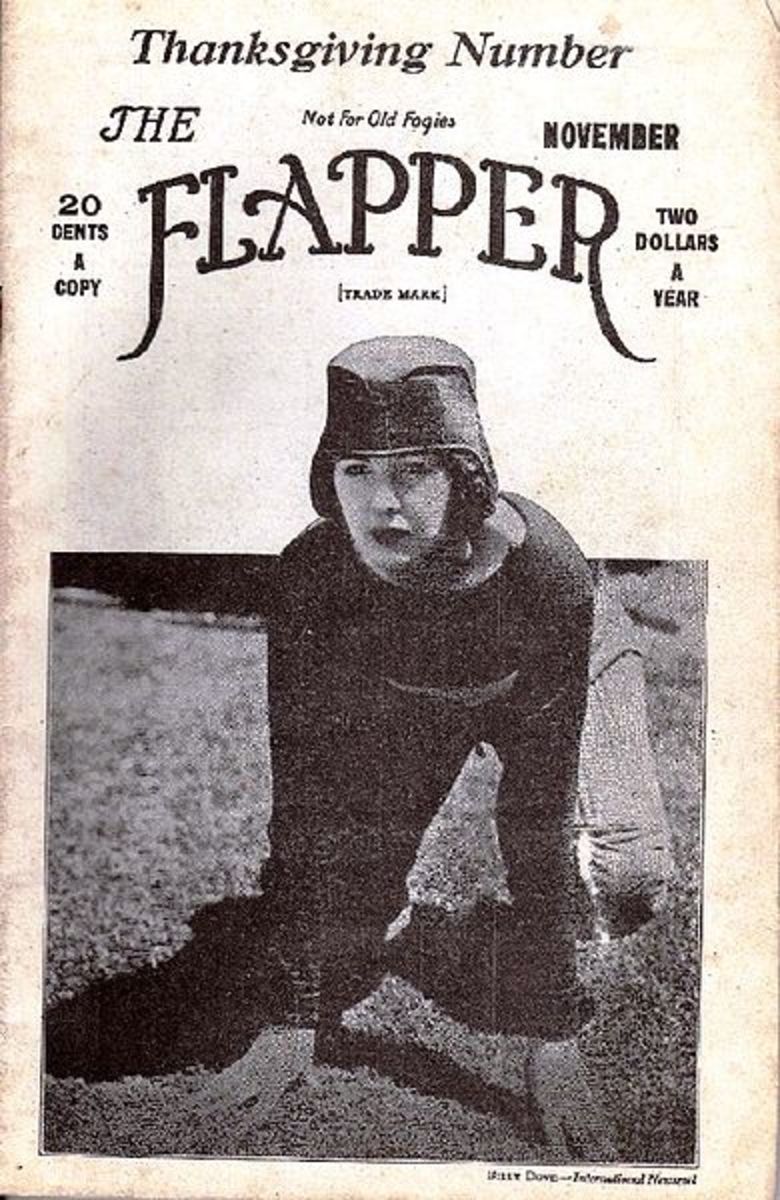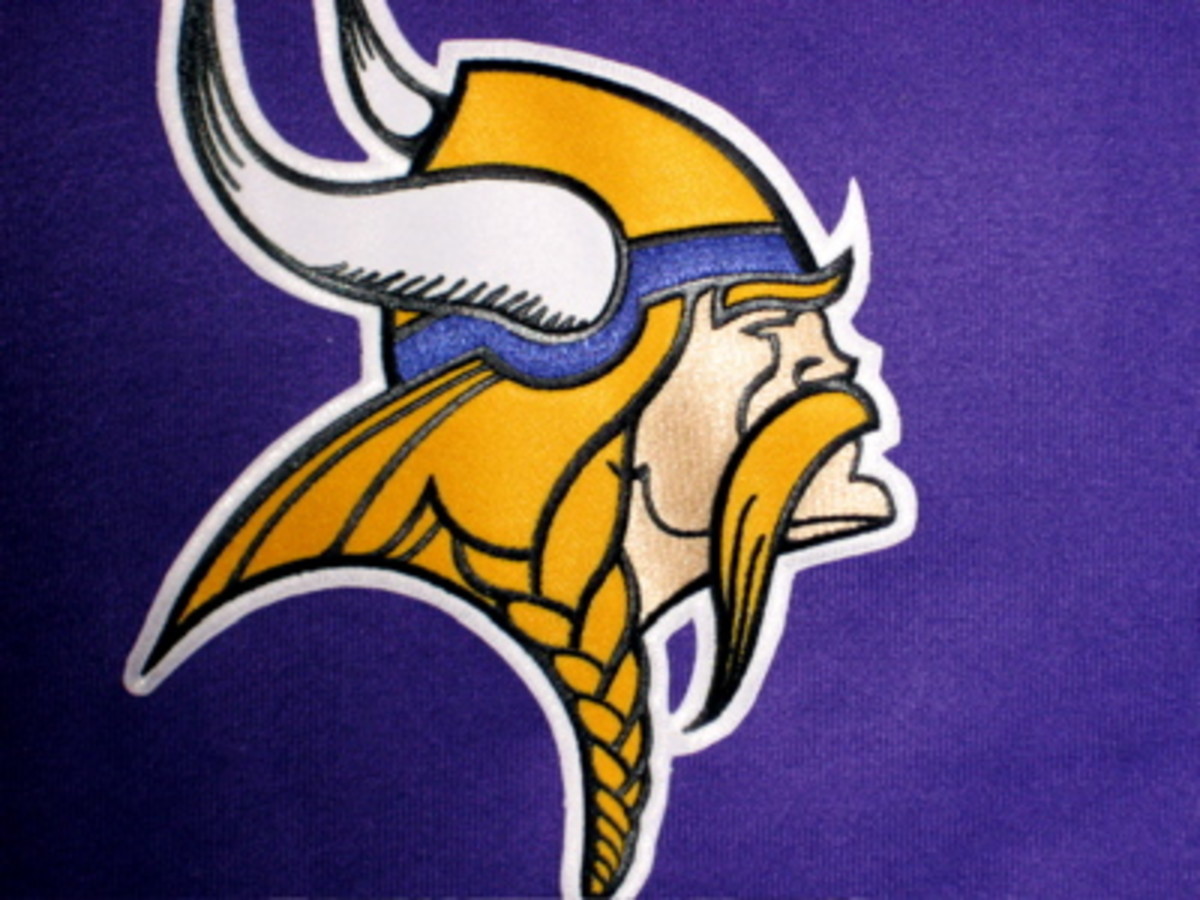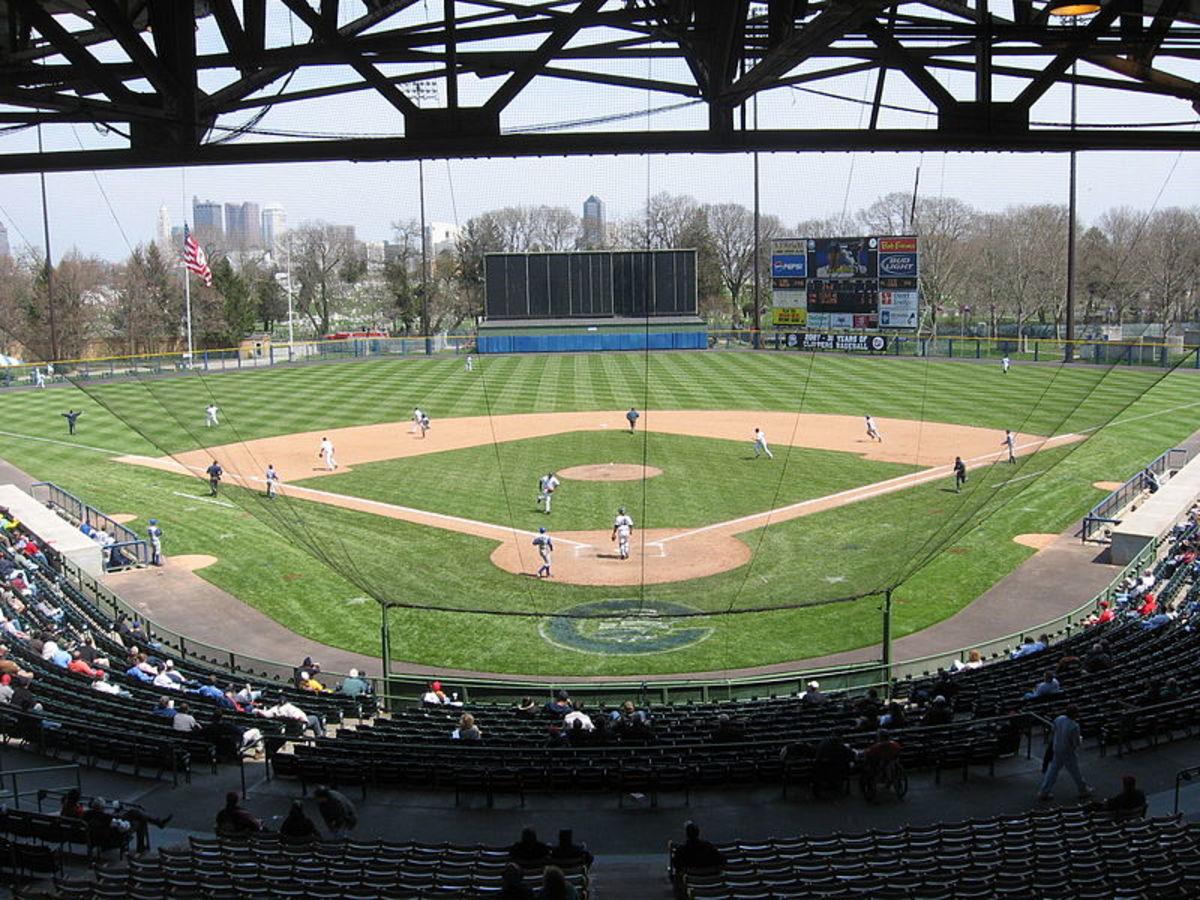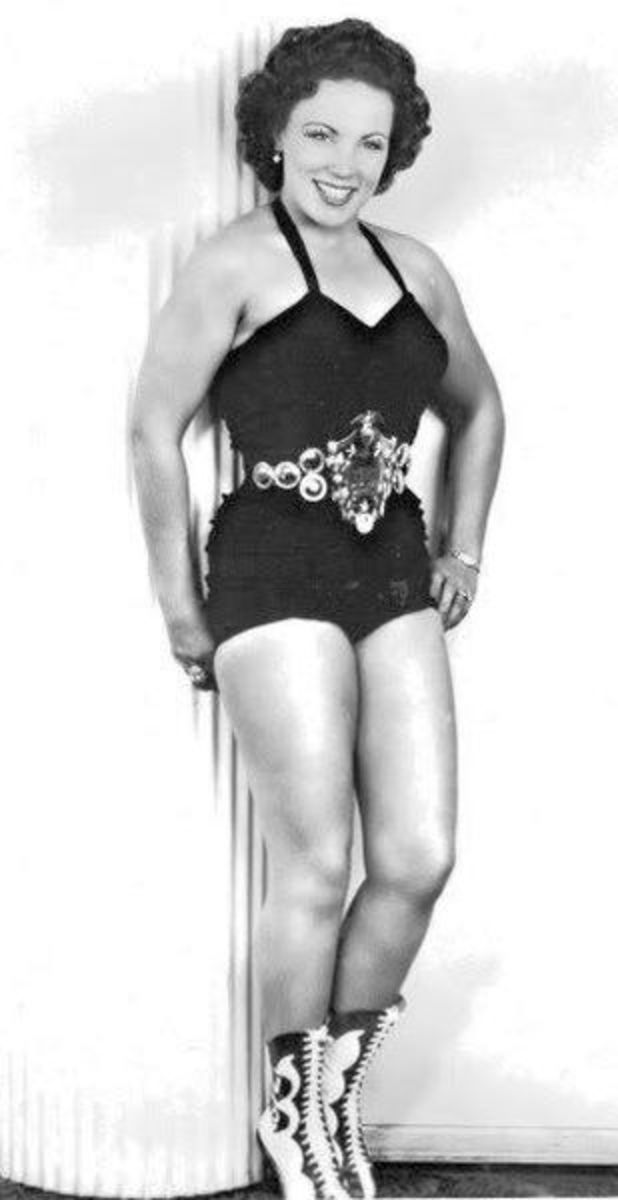The NFL Was Forever Changed By The American Football League
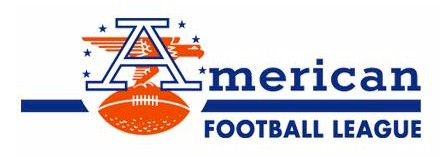
Prior to 1959, the dominant league in professional football was the NFL. This had been the case since the creation of the NFL in 1922. A businessman from Dallas named Lamar Hunt wanted to create a new professional football league. He knew there were a number of individuals who had been denied the opportunity to own a team in the NFL. These people all wanted to own a professional football team. The new professional football league would be called the American Football League. Hunt's dream became reality in 1960 as the league had its first season. The American Football League lasted from 1960 to 1969 before it merged with the NFL.
Professional Football Changes
When the American Football League (AFL) began, it changed how professional football was played. It initiated the two-point conversion. The AFL began by having the official time displayed on a clock located on the scoreboard. It was the first league to have player identification on player's uniforms. The AFL was the first league designed to have the teams mutually share in gate and television receipts. The AFL had the first professional football game ever televised nationally. This league also reintroduced the 14 game schedule. It was the first professional football league to utilize slow-motion game films. Its uniforms and team logos were noted for their high level of creativity. In its initial season, the AFL played the first professional football game on Thanksgiving Day. It was between the Dallas Texans and the New York Titans. The Titans won 41-35. The final year of the AFL was 1969. This was the first year a professional football league had wild card playoffs as part of their playoff system. From each division, the second-place teams played the winners of the other divisions.
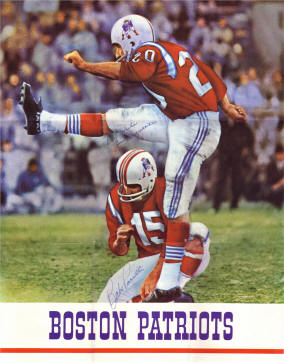
Original Eight AFL Teams
The cities with charter memberships with the AFL were Dallas, Denver, Los Angeles, Houston, Minneapolis and New York. Late in 1960, Boston and Buffalo were awarded an AFL franchise. Early during the initial 1960 season, Minneapolis left the AFL to be part of the National Football League. Oakland was then offered a franchise, and they were picked up as a replacement city.
AFL Eastern Division
Boston Patriots
Buffalo Bills
New York Titans
Houston Oilers
AFL Western Division
Dallas Texans
Oakland Raiders
Los Angeles Chargers
Denver Broncos
In time, the Los Angeles Chargers team moved to San Diego. The Dallas team moved to Kansas City to become the Chiefs. The New York team was purchased. The new owners renamed the team, the New York Jets. The Cincinnati Bengals were added as an AFL expansion franchise. In 1965, the AFL awarded a franchise to the city of Miami. The Miami Dolphins then played their first season. In 1966, Atlanta was awarded an AFL franchise. The Atlanta Falcons then began playing as an AFL team.
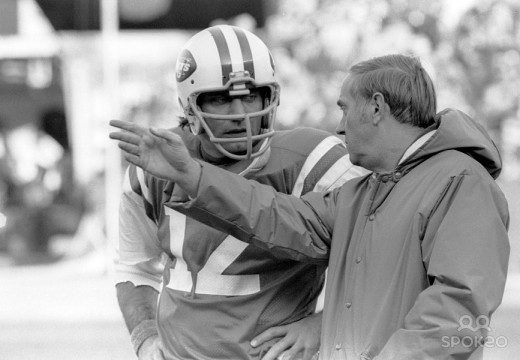
AFL Draft
The AFL's first draft lasted for 33 rounds. The first drafts were conducted separately from the NFL's drafts. During 1961 and 1962, the drafts were done on a regional basis. Teams were assigned areas around their home city. Theses teams had the rights to the players from those areas. This made it possible for local football stars to sign with a local professional football team. The AFL also was the first professional football league to sign players from small colleges and all-black colleges. This type draft resulted in some of the most impressive professional football players being part of the AFL. Players such as Abner Haynes, Jim Otto, Lance Alworth, Billy Shaw, Matt Snell, Nick Buoniconti, Joe Namath and many others played for AFL teams. The AFL and NFL would get into bidding wars for players. In 1965, the Kansas City Chiefs drafted Gale Sayers in the first round of the AFL draft. Sayers ended up signing to play for the NFL's Chicago Bears. During the same year, the NFL's St. Louis Cardinals and the New York Jets both drafted Joe Namath. He ended up signing with the New York Jets. At that time, it was the highest amount ever paid for a college player. Namath got $427,000 and a new car.
AFL Equals NFL In Popularity
One of the defining moments for the AFL was when it signed a lucrative $36 million television contract at the beginning of its 1965 season. The contract was signed with NBC. This meant the AFL would have enough money to complete for NFL players. In 1964, a single-game attendance record for a professional football game was set at Shea Stadium. Over 61,000 fans paid to see the AFL game between the Buffalo Bills and New York Jets.
AFL Championships
A single-elimination playoff game between the winner of its two divisions determined the AFL champion.
AFL Champions
1960 - Houston Oilers
1961 - Houston Oilers
1962 – Dallas Texans
1963 – San Diego Chargers
1964 – Buffalo Bills
1965 – Buffalo Bills
1966 – Kansas City Chiefs
1967 – Oakland Raiders
1968 – New York Jets
1969 – Kansas City Chiefs
AFL – NFL Merger
The NFL initiated the discussions about a possible merger between the two professional football leagues in 1965. There was a concern that the aggressive drafting tactics of the AFL could reduce the level of talent in the NFL. The National Football League and the American Football League announced they would officially merge on June 8, 1966. Under the terms of the agreement, each league would maintain their separate regular season schedules until the 1970 season. They would then merge and become one league with two separate conferences. The design of the new conferences was a topic of hot debate among the football franchise owners. In the end, a variety of different combinations were created for the divisions. Each of these combinations were placed on slips of paper. The slips of paper were then put into a hat. The combination of teams in the new NFL divisions were then determined by slips of paper pulled from a hat by a secretary.
Professional Football League Changes
When the merger was final, the AFL had 10 teams, and the NFL had 16. There would be two conferences. The American Football Conference (AFC) and the National Football Conference (AFC). To balance things out three teams from the NFL were moved to the newly formed American Conference. They were the Cleveland Browns, Baltimore Colts and Pittsburgh Steelers. There would now be six divisions and an eight-team playoff tournament. The wild card playoff concept from the AFL would now be incorporated for the playoff tournament.
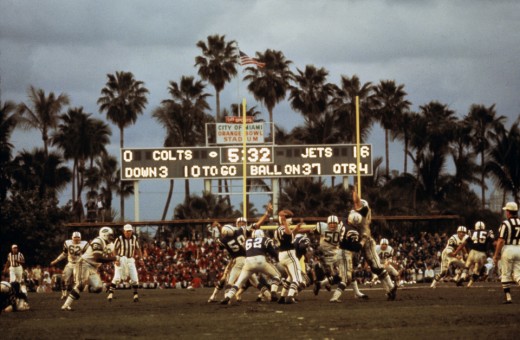
Super Bowl
One aspect of the AFL – NFL merger was that the champion team from each league would meet in a world championship game until the merger was in effect for the 1970 season. During meetings for the merger of the two professional football leagues, Kansas Chief's owner Lamar Hunt kept referring to the championship game between the AFL and NFL as the Super Bowl. The league's owners decided to call it the AFL-NFL Championship game. The media learned about it being referred to as the Super Bowl. That is what the media called the championship game. The name Super Bowl eventually became the official name during the third championship game.
AFL-NFL Championship Games
January 15, 1967 Super Bowl 1 – Green Bay Packers 35, Kansas City Chiefs 10
January 14, 1968 Super Bowl II – Green Bay Packers 33, Oakland Raiders 14
January 12, 1969 Super Bowl III – New York Jets 16, Baltimore Colts 7
January 11, 1970 Super Bowl IV – Kansas City Chiefs 23, Minnesota Vikings 7


